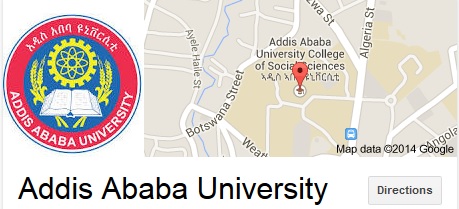Growing vegetables without soil, possible?
What a soul watering low land Rift Valley, a breath taking terraced landscape that formed a view of ploughed land due to a passive volcanic eruption.
I trek through it driving to Metehara town, Oromia Regional State, along with my colleague to visit the integrated aquaponic center constructed by the Department of Zoological Science at Addis Ababa University (AAU).
Not more than three hours it took us to arrive at Metehara. The camera man tabbed me in the back and said, “So, you are just to see how one can grow a plant without soil? Haha, this is flattering”
“We are just to see it man!” I said. We headed to the outskirt where the aquaponic center was located. Waiting us by the center were investigators including Professor Abebe Getahun, principal investigator of the project and team members drawn from different higher institutions in the country.
Listening to their brief on the fascinating symbiotic relationship of fish and vegetables, fish being a gardener, was in one way funny because it seems magic or a science fiction.
Vegetables grow no one watering them, no one weeding them and moreover, with no soil and fertilizer. Doesn’t it seem a dream, of course it does but this is how it came out to be possible and is deeply a product of biological scientific investigation.
Fishes are grown in a tank filled with water, a tank that is constantly poured in with a prepared diet for the fish to eat. All tanks are plumbed together. Tubes are connected to the plumbed tanks. Plastic containers are fixed at interval on a long tube through which water moves and reaches plastic containers on which the vegetables are cultivated.
The way the plants grow is totally symbiotic. The plants are put in the plastic container and they get their foods from the waste material of fish living in the water filled reservoir.
When we think of vegetables naturally we assume plants growing in small plot of land where the owner works hard in weeding and watering them. In aquaponic, there is no need to fertilize and require no soil to root in the vegetables. The fish can do all that. The waste of the fish is transported to the plastic container on which the vegetable is planted by a pooling machine.
The waste of the fish helps the plant as a nutrient and the nutrient as the experts say, can raise the vegetables alone or with no presence of soil. When the plants absorb the waste from the water, the water becomes clean and is re-circulated to serve the fish back in the reservoir.
This system allows the vegetables grow faster and healthier bearing fruits all the year round regardless of the natural rain season. Apart from its contribution to the zoological experiment, the center has now become a business to 21 youths graduated from universities and colleges.
These youths say, they have received adequate training on how to care for the fish and refill the fish tanks with water as well as feed the chicks.
According to Prof. Abebe each of the beneficiaries is expected to get 2500.00 EB per month when the integrated aquaponics reach the full harvest of the fish, poultry and vegetables.
Muluneh Geremew is beneficiary from the integrated aquaponic center. He said he had no job for long after his graduation. “I felt hopeless every morning because I had nowhere to go “he said.
“I have never expected university’s centers of experiments would bring this job to us. I am thankful to the AAU” he added. Many of his friends who are now working with him share the same story of despair due to unemployment.
This has to inform higher institutions that we must take on our current challenges especially on the stubbornly high rate of unemployment, particularly amongst our youth.
No matter how difficult it is, no challenge is too big when we join hands in our strides to tackle it. Together we can take on the challenge of youth unemployment by a joint effort that involves individuals, private sectors, higher institutions, non-state actors and government.
The work done by the Department of Zoological Sciences of the College of Natural and Computational Sciences of the AAU is a wake alarm to strengthen community services in university through research findings.
According to Professor Abebe, the current economic situation creates a sense of urgency in devising ways to boost the creation of jobs for the youth and to improve young people’s access to those jobs.
Ethiopia being a rose bed for agriculture, an extensive research in the sector can bring new system of exploiting the natural resources that in turn many rural lives from poverty.
By Onesmos Amberas.

















 The main Admission Office It is located on the Main Campus (at Sidist Kilo) of Addis Ababa University.
The main Admission Office It is located on the Main Campus (at Sidist Kilo) of Addis Ababa University.











